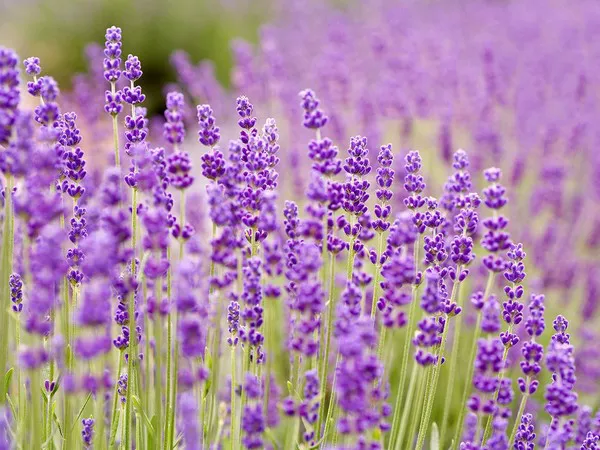Mosquitoes, known for their irksome bites and potential to transmit diseases, have spurred the search for effective repellents. While chemical solutions have their place, the natural world offers an array of alternatives, including mosquito-repellent flowers. In this comprehensive article, we dive into the world of botanical guardianship, exploring flowers that possess the power to deter these pesky insects and other methods surrounding this natural defense.
Blossoms of Defense: The Floral Arsenal Against Mosquitoes
Amidst the splendor of flowering plants, certain blossoms boast properties that repel mosquitoes. Understanding the chemistry and science behind these botanical defenses provides valuable insight into how nature equips plants to safeguard themselves and the environment around them.
1. Marigolds: A Colorful Shield
Marigolds (Tagetes spp.) stand as one of the most well-known mosquito-repellent flowers. The pungent aroma they emit is attributed to compounds like pyrethrin, which acts as a natural insect repellent. Placing marigolds in outdoor areas can help deter mosquitoes and, as a bonus, add vibrant hues to the landscape.
2. Lavender: A Fragrant Sentinel
Lavender (Lavandula spp.), cherished for its soothing scent, is equally cherished by humans and detested by mosquitoes. The floral scent, which humans adore, masks the scent cues that mosquitoes use to locate hosts. Lavender’s essential oils, with compounds such as linalool and linalyl acetate, work together to create a natural deterrent.
Botanical Chemistry: Unveiling the Science Behind Mosquito Repellency
The repellent properties of certain flowers are rooted in intricate chemical compositions. Understanding the science behind these compounds provides a deeper appreciation for the role flowers play in safeguarding us from mosquito annoyance and potential health risks.
1. Citronella: The Versatile Essence
Although not a flower itself, citronella (Cymbopogon nardus) is derived from a grass that yields a potent essential oil. Citronella candles and sprays are popular mosquito repellents. The oil’s high content of citronellal and geraniol creates an aroma that interferes with mosquitoes’ ability to find a blood meal.
2. Geraniums: Nature’s Camouflage
Certain species of geraniums (Pelargonium spp.) are hailed for their mosquito-repellent properties. The aroma, attributed to compounds like citronellol, geraniol, and linalool, adds a layer of natural defense. As a decorative bonus, geraniums’ vibrant blooms add a touch of beauty to outdoor spaces.
Cultivating Protection: Incorporating Mosquito-Repellent Flowers
Integrating mosquito-repellent flowers into landscapes, gardens, and even interior spaces offers both functional and aesthetic benefits. The careful placement and cultivation of these botanical defenders can significantly reduce mosquito encounters.
1. Landscape Design with Purpose
Strategically planting mosquito-repellent flowers in outdoor landscapes can create mosquito-free zones while enhancing the visual appeal of the environment. Consider placing marigolds, lavender, and geraniums near seating areas, entrances, and windows to maximize their protective impact.
2. Container Gardens and Indoor Spaces
For those with limited outdoor space, container gardens offer a versatile solution. Placing potted marigolds, lavender, or geraniums on balconies, patios, or even window sills can provide natural protection. Additionally, cultivating these plants indoors can create mosquito-free havens within the home.
Holistic Pest Management: Beyond Flowers
While mosquito-repellent flowers are valuable allies in pest management, a comprehensive approach involves considering the broader ecological dynamics. Incorporating other natural practices and elements can contribute to a balanced and sustainable strategy.
1. Water Management
Mosquitoes thrive in standing water. To complement the repellent effects of flowers, eliminate sources of standing water around your property. Regularly emptying containers and ensuring proper drainage can disrupt the mosquito life cycle.
2. Companion Planting
Some plants have natural properties that repel insects. Incorporating herbs like rosemary, basil, and mint in your garden can provide a secondary line of defense against mosquitoes while enhancing culinary possibilities.
Cultivating Harmony: Balancing Natural Solutions and Modern Needs
In an era where chemical solutions are widely available, exploring the world of mosquito-repellent flowers showcases the harmonious relationship between nature’s gifts and human needs. By tapping into the intricate chemistry and sensory cues of flowers, we discover a tapestry of protection that resonates with both functionality and aesthetics.
1. Eco-Friendly Solutions
The adoption of mosquito-repellent flowers aligns with eco-conscious practices. Embracing nature’s repellents reduces the reliance on synthetic chemicals that can have unintended consequences for ecosystems and human health.
2. Cultivating Connection
Beyond their practical benefits, mosquito-repellent flowers invite us to connect with the natural world. Tending to these plants fosters a sense of stewardship, allowing us to witness firsthand the interplay between botanical intelligence and human well-being.
Conclusion
In the realm of botanical beauty lies a powerful arsenal against mosquito annoyance and health risks. Mosquito-repellent flowers, with their captivating fragrances and chemistry, stand as guardians of our outdoor spaces and indoor sanctuaries. As we cultivate these protective blooms, we forge a deeper connection with the natural world while reaping the benefits of both functional defense and aesthetic delight. In the delicate petals and vibrant foliage of these flowers, we find a testament to the ingenious ways nature equips us to coexist harmoniously with its inhabitants, even the pesky ones.


